Documentary Review: 'F.T.A' Free the Army
For years, the Anti-war documentary F.T.A was missing, hidden away by Hollywood players. Now, Kino Lorber brings it back to life.
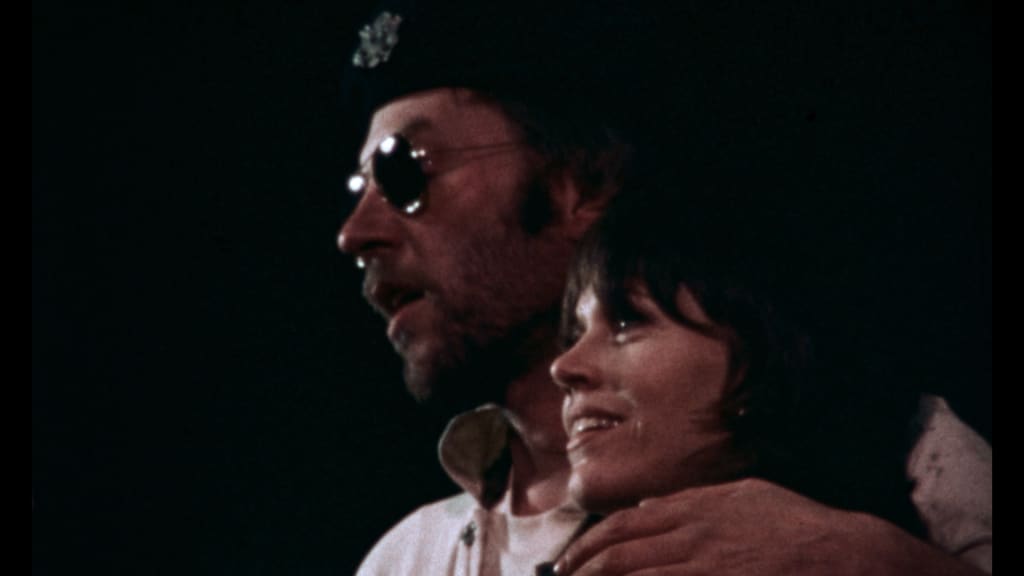
I started out in radio at the age of 19 and at that time, I was only vaguely aware of Jane Fonda. At 24 however, when I landed my first, full time radio gig, as a producer of an all male, conservative talk radio station, I was introduced to Jane Fonda in the strangest way. After September 11th, and the move toward war in Afghanistan and Iraq we began to get calls constantly warning those Jane Fonda types in Hollywood to keep their mouths shut.
In conservative talk radio in the early 2000s, Jane Fonda wasn’t a venerated actress and activist, she was a buzzword, an all encompassing point of vitriolic hatred. Bare in mind, Jane Fonda had barely worked in Hollywood since starring in 1990’s Stanley and Iris and would not make a mainstream Hollywood feature again until 2005’s Monster In-Law. And yet, for me, as a call screener on talk radio, I was treated to a barrage of talk about Jane Fonda.
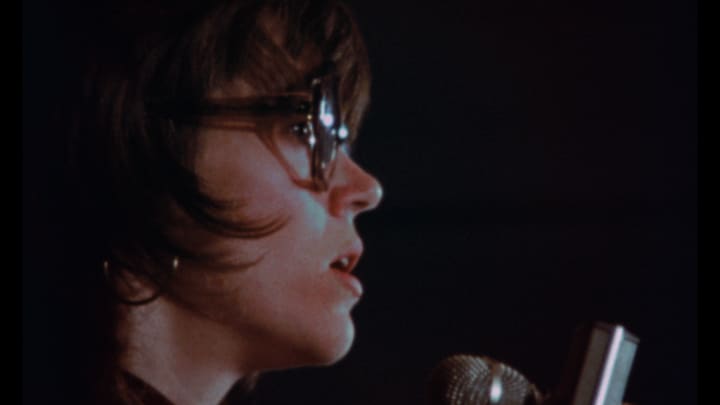
When I finally made the mistake of asking why callers were talking about someone who, for me, was more famous as Ted Turner’s soon-to-be ex-wife, I was overwhelmed with fiery anger as callers explained to me, as condescendingly as possible, why she remained an enemy even greater than the Vietcong and Saddam Hussein combined. Hanoi Jane, as she was called, according to the callers, had sided with the enemy during the Vietnam war and was directly responsible for getting men killed with her anti war activity.
More than a decade since she’d been relevant in Hollywood and, at the time, nearly 30 years since that war had reached its ignominious end, Fonda was still hated, especially in the cloistered, elderly and male universe of talk radio. Fonda herself has since acknowledged that some of the things she did were naïve and out of the desire to, at the very least, try and use her fame to alleviate suffering and try and stop what she, and millions of others, believed was an unjust war.
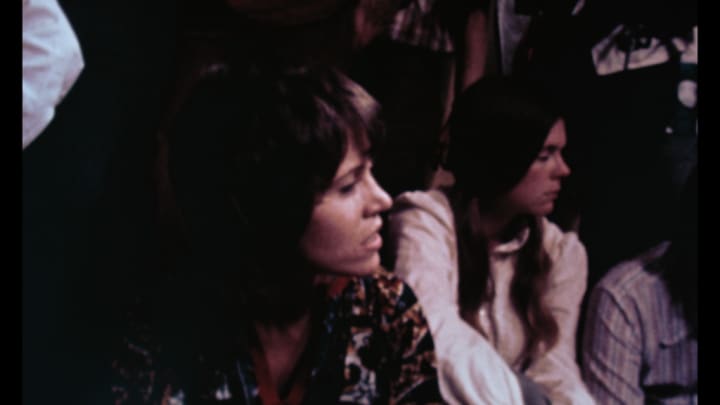
The newly remastered and restored documentary, F.T.A, may unleash a whole new deluge of talk radio vitriol on Fonda. F.T.A is a 1972 documentary that follows Fonda and Donald Sutherland as they front a tour of artists, musicians, poets and activists performing anti war songs and skits. The tour was highly controversial at the time it was made as it travelled to foreign countries and played adjacent to United States military outposts and to audiences of soldiers posted to those outposts, against the wishes of the U.S government.
The acronym, F.T.A actually has roots in the military itself though certainly not in an official capacity. The artists of the F.T.A tour rejiggered it to mean Free the Army, among a few other variations. But, the military men that the tour played for knew exactly what it really meant, F*** the Army. It was something that those who were drafted to Vietnam used to write on their helmets as their own silent protest of the war they never asked to fight.
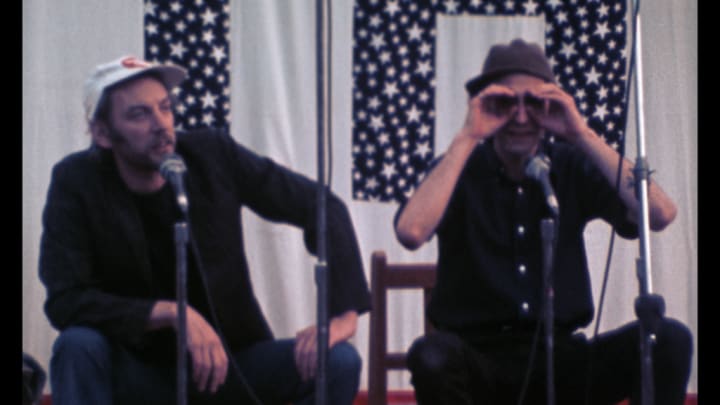
The documentary F.T.A, directed by the late Francine Parker, is boldly messy and chaotic. That may not sound good but considering the chaos of the war and the protest movement and the conflicting forces for and against this documentary, messy and chaotic is a rather perfect way to bring F.T.A to the screen. We start in Washington D.C and we get a great sense of the irreverent humor on display as the song F.T.A is met with rapturous laughs and appreciation.
That positive reception in D.C in front of a hippie audience quite surprisingly doesn’t change when the crew takes the show overseas and where soldiers are the primary audience. Those drafted to fight in Vietnam and attending these shows while on leave or before redeployment to the jungle, appeared to deeply identify with the transgressive humor of F.T.A. Much of the humor in the movie is pitched directly to the gallows humor style that got so many of these men through the horrors of the war. At some point suffering such as that experienced in Vietnam becomes so absurd, that absurdity is the only rational response and audiences in the documentary appear to find that same vibe in the variety show.
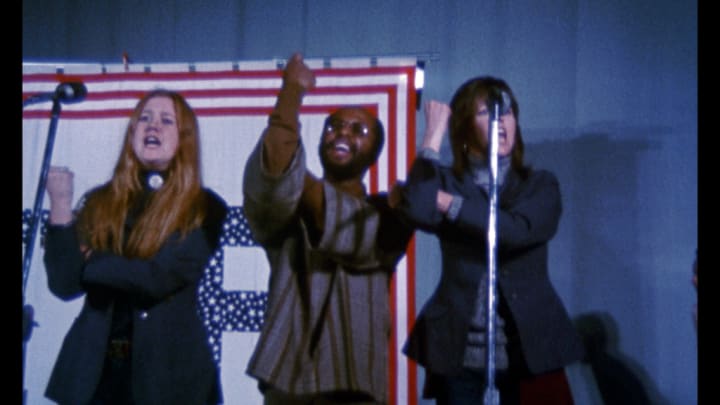
F.T.A presents version of history that is often ignored in favor of the sadder and more compelling narrative about bitter ex-vets, so angry at movie stars for protesting the war that the resentment has lingered for nearly 50 years. That same resentment put the final cut of F.T.A on a dusty shelf shortly after it was released in 1972, and kept it there for nearly 50 years until Jane Fonda teamed with the extraordinary team at Kino Lorber to give it new life.
Watching audiences of soldiers rooting for and cheering on war protestors who are there to entertain them may seem incongruous but it happened. Hippies were upset that F.T.A played to that audience and the louder voices of the pro-war movement were upset that hippies were making in-roads with the front line soldiers, the draftees who were already unruly and now were being rallied against their draft captors.
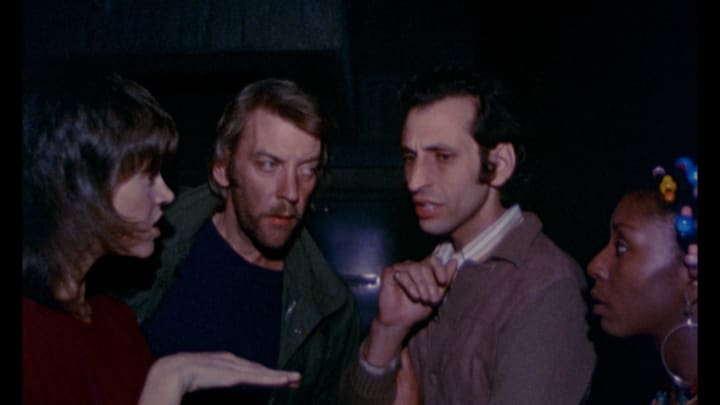
The most powerful moments of F.T.A don’t feature the movie stars. Instead, director Francine Parker and her crew managed to find ways to get to the real soldiers, the draftees, who were eager to discuss their plight. A large group of black soldiers especially have harsh words for the American military as they repeated Muhammad Ali’s oft-repeated quote about how the Vietnamese, to paraphrase, never did nothing to hurt him.
F.T.A was not without its trials and tribulations. In Japan, the company was refused entrance to the country and were allegedly illegally detained at the behest of Nixon administration emissaries. That turned out okay as the group ended up doing an incredible show in Okinawa instead that provided several indelible moments captured in the documentary. There was also a brief interruption by pro-war soldiers who interrupted a performance with boos and catcalls. That is one of the most compelling moments in the documentary and I will leave you to seeing it for yourself when you see F.T.A.
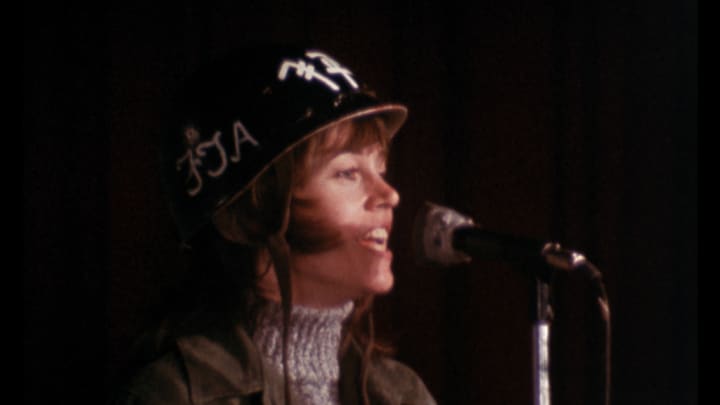
The newly remastered and re-released documentary features a new interview with Jane Fonda reflecting on the making of F.T.A and that chaotic moment in history and how she was drawn into the fray. Fonda gives wonderful insight into her young self and the naïve but determined idealism that drove her to risk her life for what she felt was a just cause. While history, for many, identifies Fonda as an enemy of American soldiers, she believed in her heart that she was an ally to those who were forced to fight a war in Vietnam, in a war that they wanted no part of.
It’s remarkable to think how the loud, angry and bitter voices have dominated much of pop history all the while this actual document of history, F.T.A, gives an almost entirely different version of history. It’s a history where Jane Fonda is still a loud and proud anti-war voice but also a voice speaking directly to soldiers and trying to use her platform to let them speak. That certainly was never mentioned during my dark days in the worst of the talk radio wars when white male misogyny was allowed to dictate what was and was not history. Speaking of white, male, versions of history, how come no one ever attacked Donald Sutherland in the fashion they attacked Jane Fonda? Hmmm.
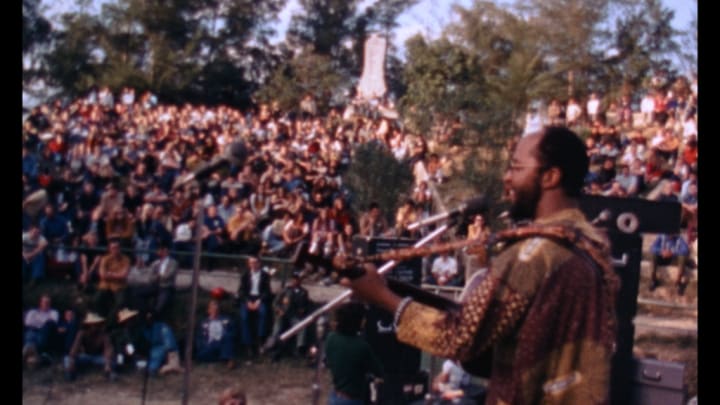
F.T.A will be available from Kino Lorber Classic on March 5th.
About the Creator
Sean Patrick
Hello, my name is Sean Patrick He/Him, and I am a film critic and podcast host for the I Hate Critics Movie Review Podcast I am a voting member of the Critics Choice Association, the group behind the annual Critics Choice Awards.






Comments
There are no comments for this story
Be the first to respond and start the conversation.